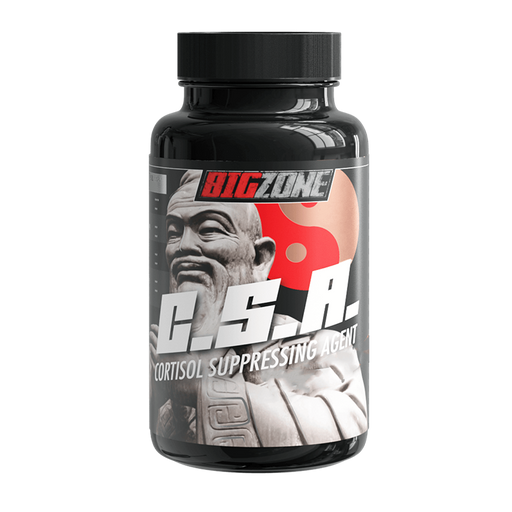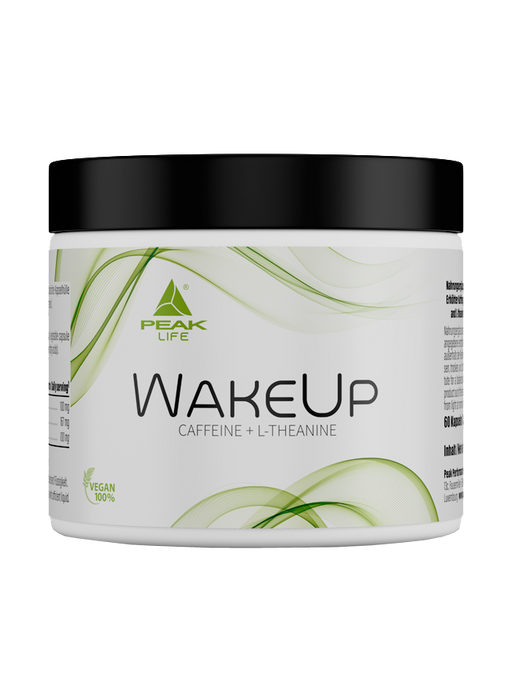L-theanine
-
 Save 0%
Save %
Original price €29,90 - Original price €29,90Original price €29,90€29,90€29,90 - €29,90Current price €29,90| /
Save 0%
Save %
Original price €29,90 - Original price €29,90Original price €29,90€29,90€29,90 - €29,90Current price €29,90| /CSA · 60 capsules
Big Zone1 reviewMuscle building requires training, nutrition and regeneration Many supplements neglect regeneration CSA improves the body's ability to deal with s...
View full detailsOriginal price €29,90 - Original price €29,90Original price €29,90€29,90€29,90 - €29,90Current price €29,90| /Save 0% Save % -
 Save 0%
Save %
Original price €34,90 - Original price €34,90Original price €34,90€34,90€34,90 - €34,90Current price €34,90| /
Save 0%
Save %
Original price €34,90 - Original price €34,90Original price €34,90€34,90€34,90 - €34,90Current price €34,90| /Hypnos Recovery · 60 Kapseln
Gods Rage3 reviewsMit Hypnos Recovery bringt Gods Rage eine sorgfältig zusammengestellte Mischung aus natürlichen Inhaltsstoffen, die den Schlaf, die Erholung und di...
View full detailsOriginal price €34,90 - Original price €34,90Original price €34,90€34,90€34,90 - €34,90Current price €34,90| /Save 0% Save % -
 Sold out
Original price €9,90 - Original price €9,90Original price €9,90€9,90€9,90 - €9,90Current price €9,90| /
Sold out
Original price €9,90 - Original price €9,90Original price €9,90€9,90€9,90 - €9,90Current price €9,90| /WakeUp · 60 capsules
PEAK1 reviewIdeal coffee alternative with a balanced energy boost Equal parts caffeine and theanine (100 mg per serving) for sustained concentration Boosts pe...
View full detailsOriginal price €9,90 - Original price €9,90Original price €9,90€9,90€9,90 - €9,90Current price €9,90| /Sold out
Theanine is an amino acid derivative of glutamine. Oral doses of 50 and 200 mg theanine administered to healthy volunteers promoted alpha wave production in the brain. Alpha waves are associated with a calm mental state. Theanine helps induce a state of calm relaxation. L-theanine (5-N-ethyl-L-glutamine) is an amino acid found in the leaves of green and black tea (Camellia sinensis). In contrast to caffeine (theine), theanine has more sedative properties. L-theanine is also found in other species such as Camellia japonica and Camellia sasanqua, but also in Xerocomus badius (chestnut mushroom). Both the taste of tea and its versatile effect are linked to the amino acid L-theanine contained in tea. Up to two percent of the dry leaf mass consists of L-theanine, which does not occur naturally in any other plant apart from tea plants. L-theanine is formed in the roots of the tea plant. The concentration in the roots and leaves of the tea plant is highest in young plants, while older roots and shoots have a lower amount of L-theanine. While L-theanine tends to provide a slightly sweet taste, the bitter taste of tea can be attributed to caffeine, among other things. While caffeine has a stimulating effect on the entire central nervous system by influencing the adrenaline metabolism and increases blood pressure and pulse rate, L-theanine is a direct antagonist of caffeine in tea. As the L-theanine is only completely released from the leaves after the tea has been brewed for a longer period of time, a tea that has been brewed for a short time is more stimulating than a tea that has been steeped for a long time. In the latter case, enough L-theanine has been released to compensate for the stimulating effects of the caffeine. As the antagonist of caffeine, L-theanine has a calming and relaxing effect, and in higher doses also lowers blood pressure. Just as caffeine is said to have a certain positive influence on mood, L-theanine also has a mood-modulating effect. In addition to its influence on the central nervous system via an interaction with serotonin, dopamine and GABA, L-theanine also plays an important role in antioxidant cell protection. L-theanine has also been intensively studied with regard to its effect on tumor cells. L-theanine has no pharmacological effect on downregulating systems in the CNS, but it supports the physiological mechanisms in the human brain during recovery after heavy physical exertion.
STUDIES
As green tea in particular is considered to be beneficial to health, numerous studies have been carried out to test the effects of the ingredients it contains. Theanine has also been studied several times, particularly in animal experiments. An influence on the central nervous system was found.
Oral administration of theanine to rats led to a decrease in the concentration of serotonin in the brain. The lethal dose determined in animal experiments in rats is above the highest tested value of 5 grams/kg body weight. No evidence of a carcinogenic effect of theanine was found and an Ames test also led to negative results.
In some studies, an effect on the central nervous system was also observed in humans. In one study, an increased formation of alpha waves in the brain, which occur in a state of relaxation, was measured after taking 200 mg theanine.
Safety and side effects
Theanine is potentially safe and harmless when used once a week for three weeks. It is not known whether daily or prolonged use is safe and harmless.
Precautions and warnings
Pregnancy and lactation: Not enough is known about the safety of theanine during pregnancy and lactation. For this reason, pregnant and breastfeeding women should avoid theanine to be on the safe side.
Interactions
Care should be taken when combining theanine with the following medications:
Medications for high blood pressure
Theanine appears to lower blood pressure. Taking theanine in combination with medication for high blood pressure could result in an excessive drop in blood pressure.
Stimulants
Stimulants accelerate the function of the nervous system. By accelerating the function of the nervous system, stimulants can speed up the heart rate and cause a feeling of restlessness. Theanine may slow down the function of the nervous system. Taking theanine in combination with stimulants could reduce the effect of stimulants.



